For the first time in five years, leatherback turtles have laid eggs on Thai shores.
Leatherbacks are the largest, deepest-diving and farthest-ranging of all the sea turtles, and are known to have existed on Earth since the time of the dinosaurs, 110 million years ago. Yet they are on the brink of worldwide extinction.
Mai Khao Beach in Phuket and Thai Muang Beach in Phang Nga were once their favoured spots in Thailand to lay their eggs, but the turtles have rarely been seen here for the last 15 years, with the last recorded nesting in Mai Khao in 2013.
Leatherback turtles prefer beaches with a slope, to limit the distance from the sea to dry sand; without bright lights; and free of debris. If no suitable spot is found, the female may return to sea without laying her eggs. It will be another 3 – 4 years before she is ready to try again.
Coastal development and marine pollution are therefore the key factors in their recent disappearance from Andaman shores.
But on 17 December 2018, a 1.25m female leatherback was spotted on Khuk Khak Beach in Phang Nga province, nesting in front of Khao Lak Orchid Beach Resort during daylight hours.
Perhaps disturbed by the people observing, the young mother laid her 118 eggs slightly below the high water mark. After being alerted, the Department of Marine and Coastal Resources (8th Division) recovered 93 viable embryos to be moved further up the beach for safety. The 89 surviving eggs are now under 24 hour surveillance and monitoring.
You can see a live web feed from the 6 CCTV cameras monitoring the nesting site here: http://loveseaturtle.dmcr.go.th
Nine days later, another leatherback nest was found by villagers just before dawn in Ban Tha Sai, Thai Muang district, some 39km from the original spot in Khuk Khak. It is not known whether the eggs are from the same mother, although the size of the imprint suggests the second nest was made by a larger female – and this time it was above the high water mark. These eggs are also under surveillance.
Pakawat “Parn” Winyukul, the leader of Trash Hero Khao Lak, visited the team from the DMCR tasked with the monitoring the Khuk Khak site a few days after the find. He reported that there was great excitement and that every care was being taken to ensure that the eggs would be safely incubated. Surface temperature of the sand was being checked every two hours, and the relative humidity and temperature of the nest, 90cm under the ground was also being monitored.
The eggs should take between 60 – 72 days to hatch. Temperature plays a large part in the success – and also determines the sex – of the brood.
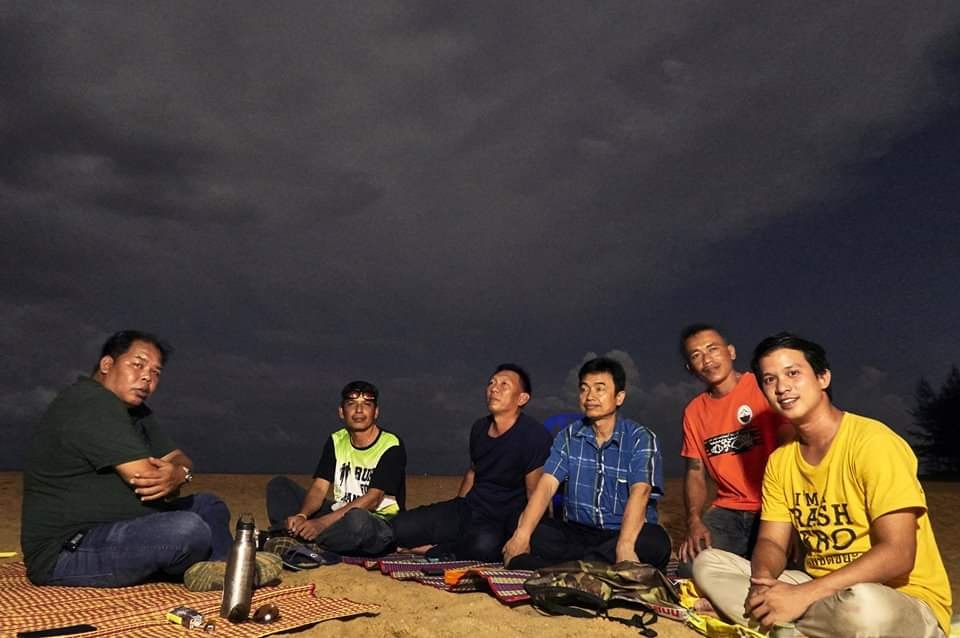 Parn visiting the DMCR team at the Khuk Khak surveillance site
Parn visiting the DMCR team at the Khuk Khak surveillance site
The Department of Marine and Coastal Resources extended thanks to all Trash Hero volunteers for helping to keep this stretch of coastline clean over the past two years, saying this had directly contributed to the turtles’ return.
“Of course, Khuk Khak beach [the site of the first nest] is kept pretty clean by the two hotels located there,” explained Parn, “and other groups such as the Department of National Parks also do cleanups on this coast, so we can’t take the credit. It’s really a whole community effort that has led to these wonderful events.
“But DMCR did stress that the [10+ tons of] garbage we have removed in this area over the past two years has had an effect on the local marine ecosystem, as that stuff would blow or wash back into the sea without regular removal.
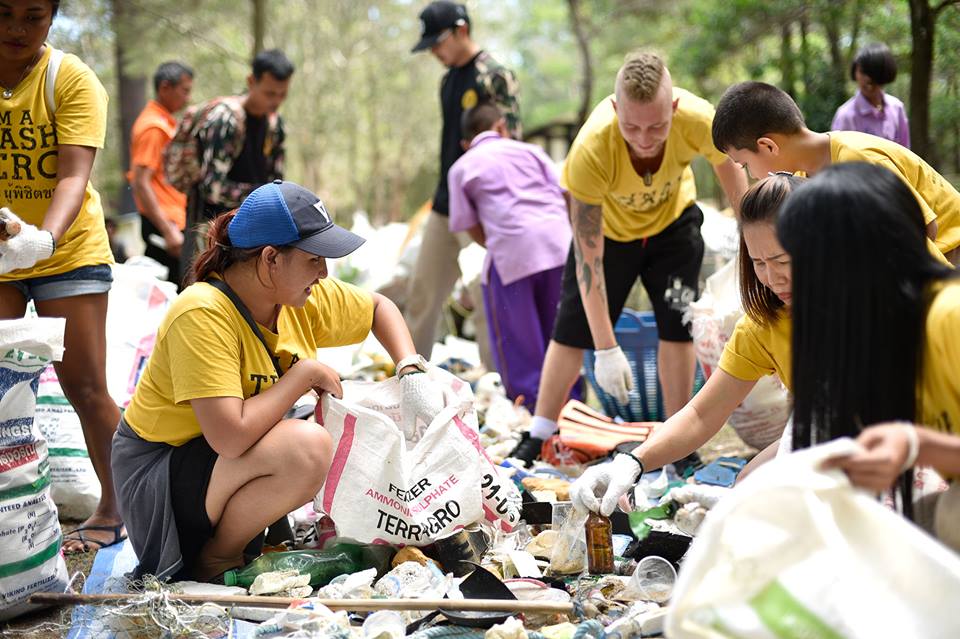 Trash Hero Khao Lak volunteers cleaning Thai Muang beach with the Dept. of National Parks
Trash Hero Khao Lak volunteers cleaning Thai Muang beach with the Dept. of National Parks
“It was a really proud moment for me to know that our small efforts can have such an amazing effect – really the best New Year gift ever!” continued a visibly emotional Parn. “The leatherback mother turtles and their babies will be an inspiration for everyone at Trash Hero Khao Lak as we continue our work in 2019.”
Prof. Dr. Thon Thamrongnawasawat, Thailand’s leading marine biologist and veteran environmental campaigner, pictured below (in the white polo shirt) with Parn, visited the surveillance centre at its launch. He also expressed his gratitude to local community groups who have been cleaning the beaches, and appealed for more efforts to reduce single use plastic bags in particular, which the turtles mistake for jellyfish – their main source of food.
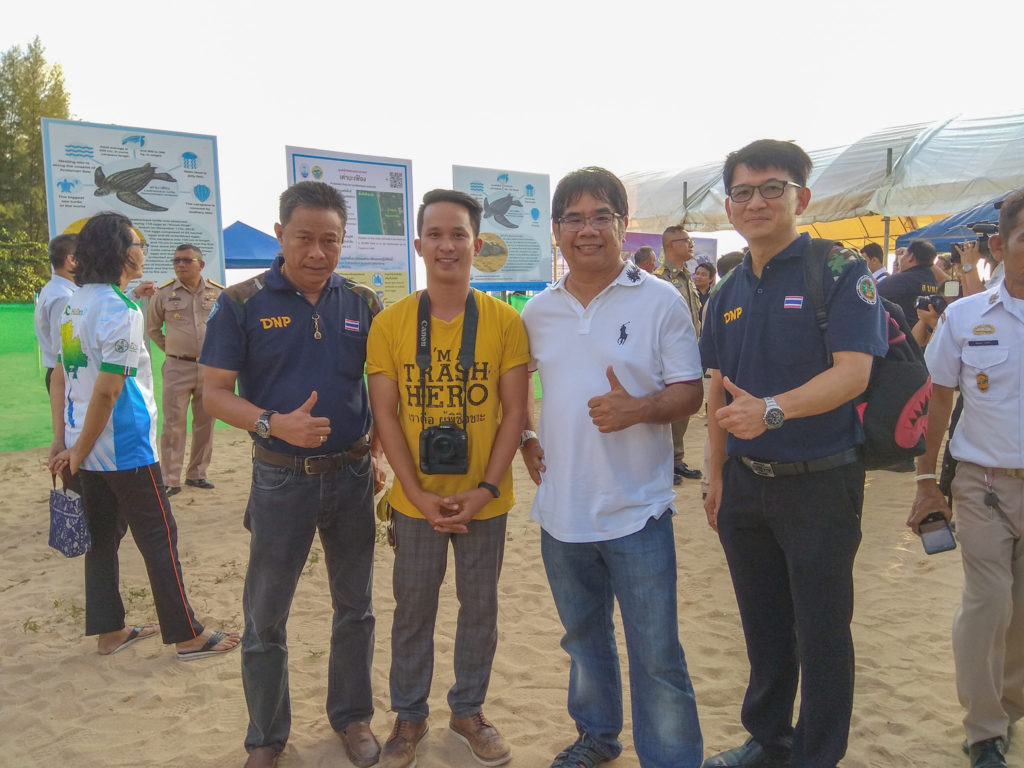
He said the sites in Phang Nga were leading the world in terms of the protection provided for the leatherback nests and that the evidence of healthy females gives him hope of a recovery in the Andaman population. There is certainly a renewed sense of optimism after the dire warnings issued last year by the Director-General of the Department of National Parks, Wildlife and Plant Conservation about the continued absence of the giant turtles.
The nesting season for leatherbacks is usually from November to February, with females returning to the area where they were born and laying up to 10 times, with intervals of 10 – 12 days. So all concerned are praying there will be more eggs to come.
According to the Leatherback Trust, only 25 % of hatchlings will make it through their first few days in the ocean, with around six percent surviving their first year. The Royal Thai Navy’s Sea Turtle Nursery at Thap Lamu, located near the nesting sites, will therefore look after the baby turtles until they are strong enough to be released back into the wild.
UPDATE: 11 February 2019
The first set of baby turtles have hatched:
read more
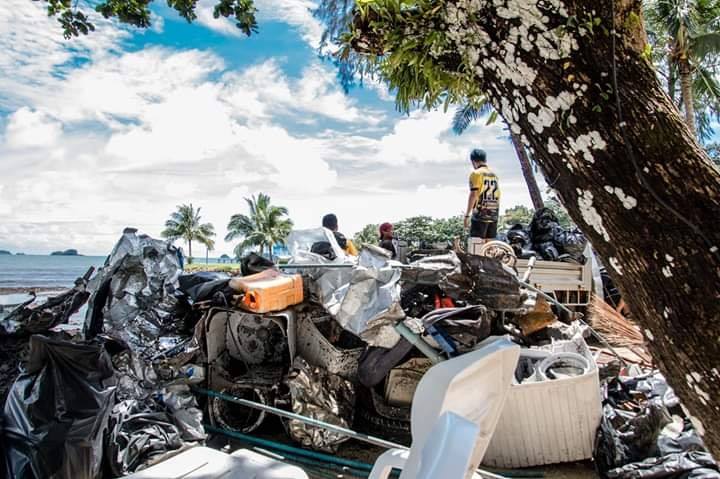 More than 1,000 volunteers assembled over the three-day cleanup, including participants traveling from all across Thailand who had seen reports about the flooding. A number of electricians, kitchen staff, and cleanup volunteers headed to Koh Chang to join the local community, eager to help restore the beautiful island quickly, brought together through a community spirit of collective action!
More than 1,000 volunteers assembled over the three-day cleanup, including participants traveling from all across Thailand who had seen reports about the flooding. A number of electricians, kitchen staff, and cleanup volunteers headed to Koh Chang to join the local community, eager to help restore the beautiful island quickly, brought together through a community spirit of collective action!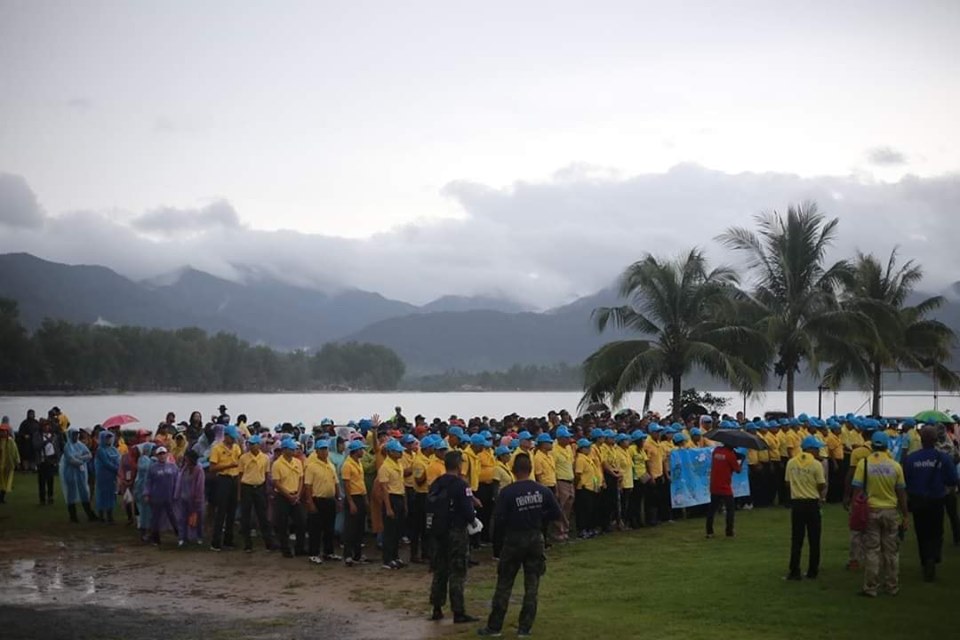
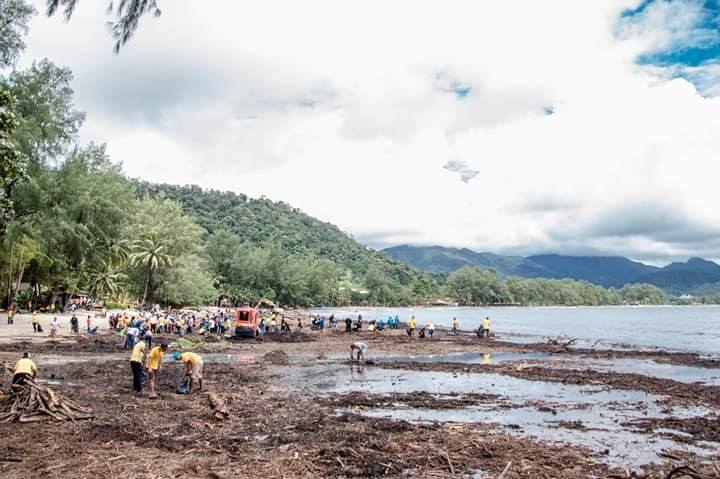

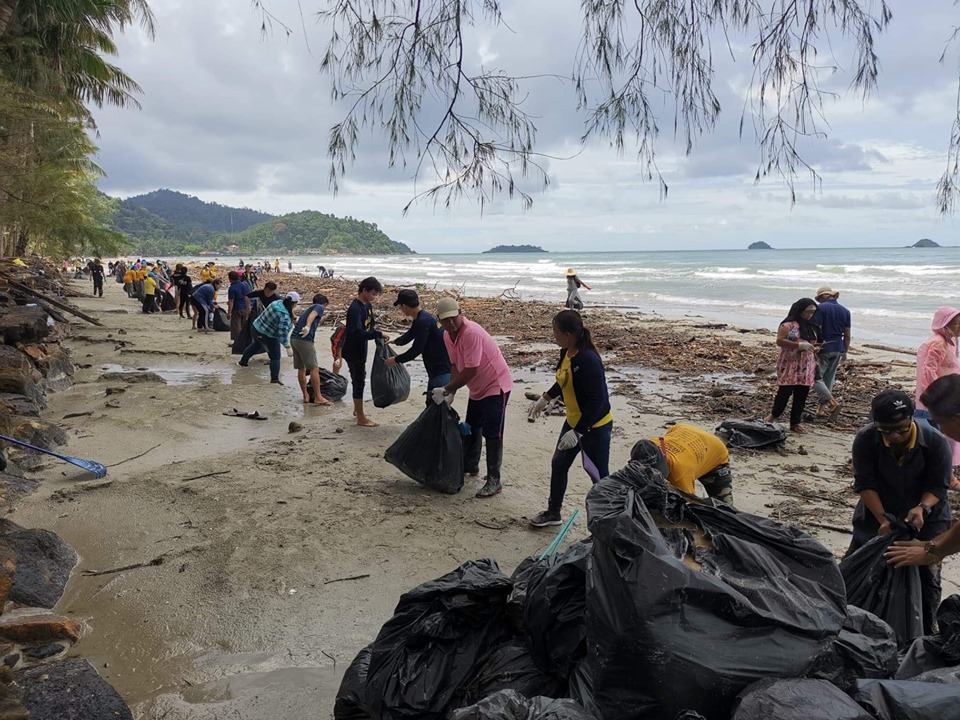
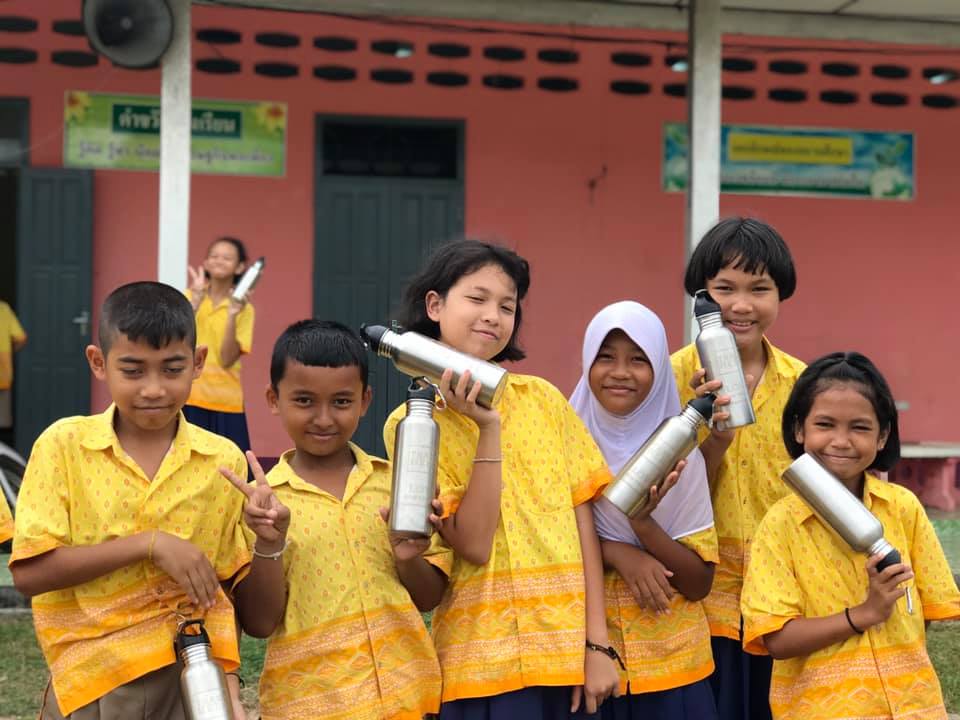
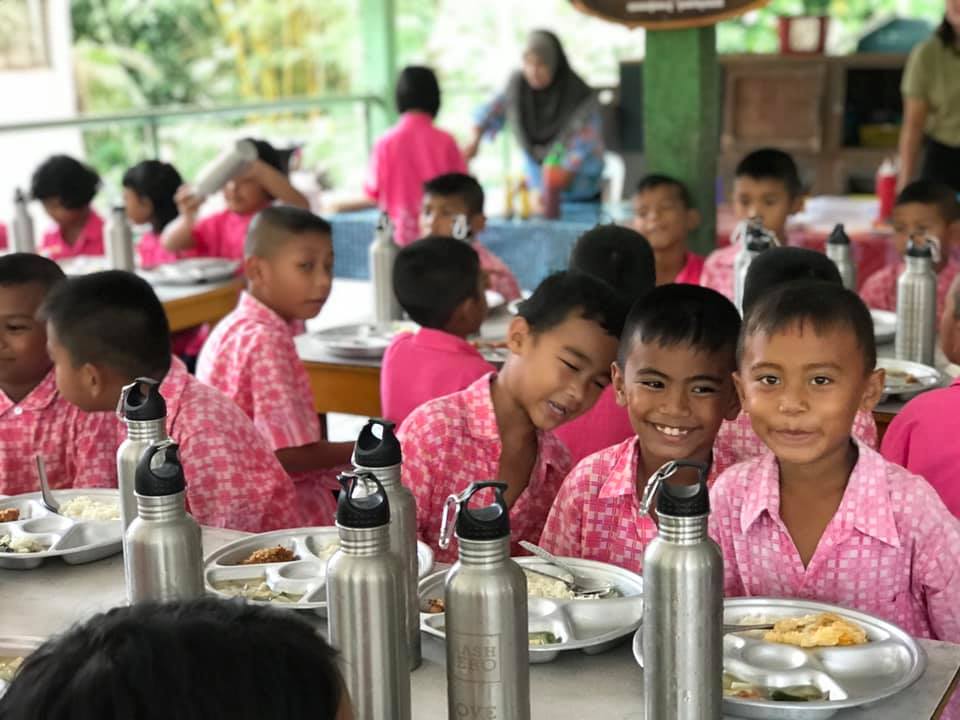 Making the switch from single-use plastics to reusable alternatives is critically important to the global fight against pollution. By teaching kids this importance, Trash Hero is actively working toward a sustainable future – and building the leaders of tomorrow!
Making the switch from single-use plastics to reusable alternatives is critically important to the global fight against pollution. By teaching kids this importance, Trash Hero is actively working toward a sustainable future – and building the leaders of tomorrow!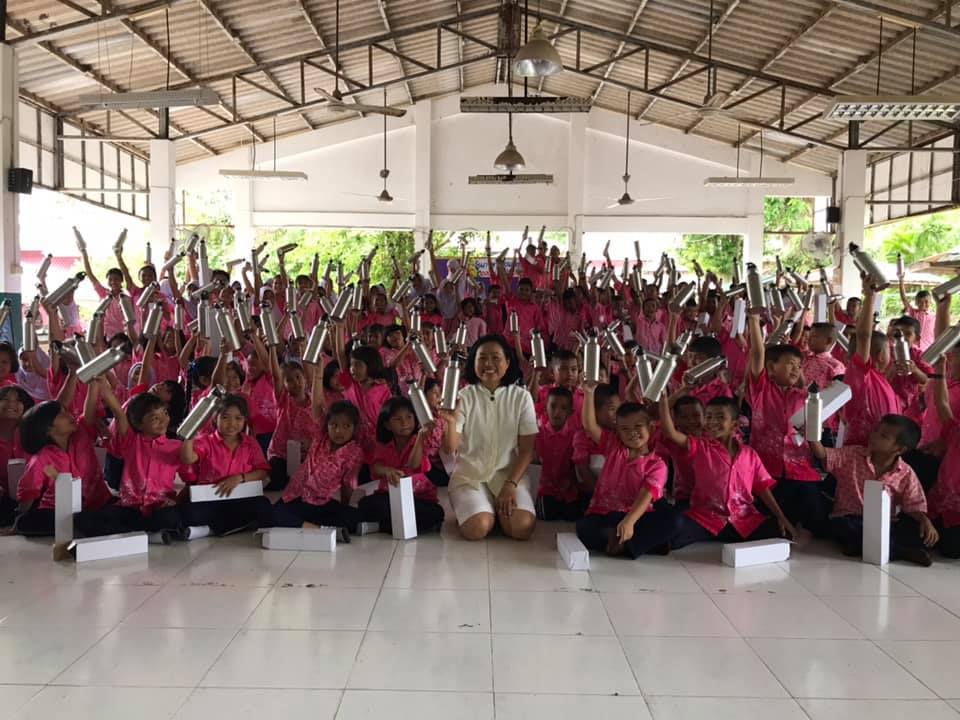
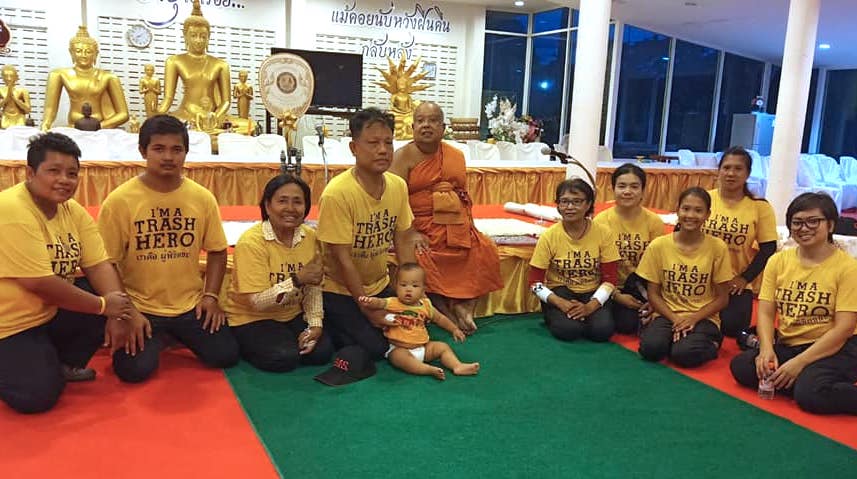
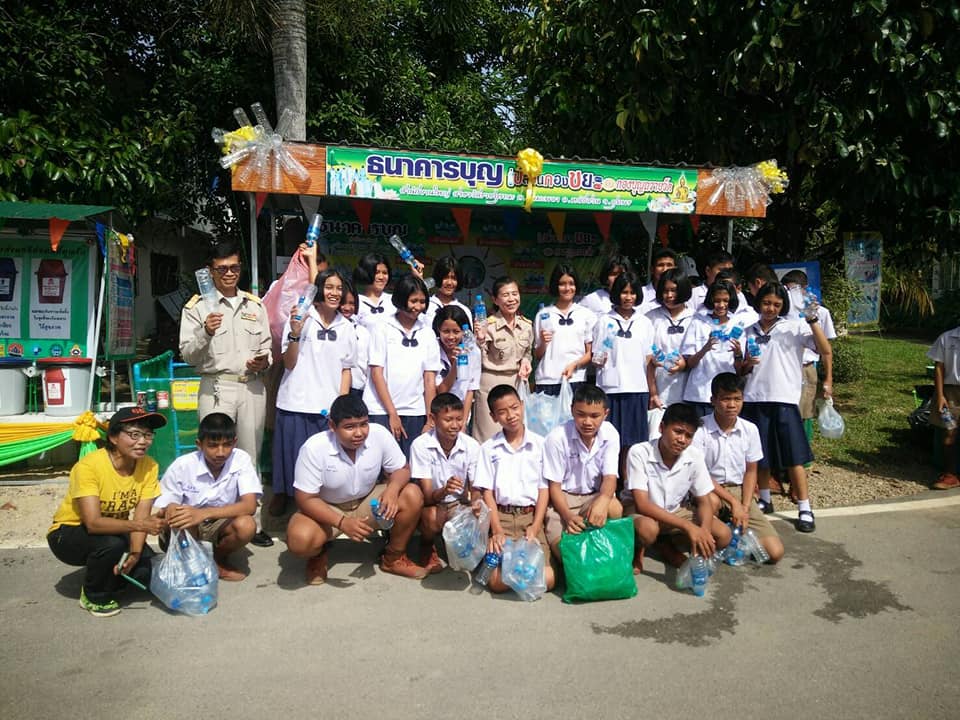
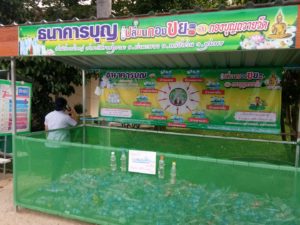
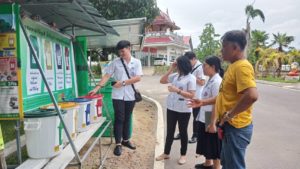
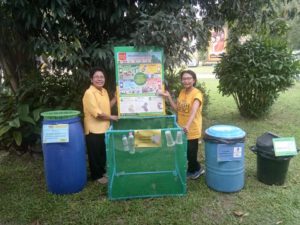
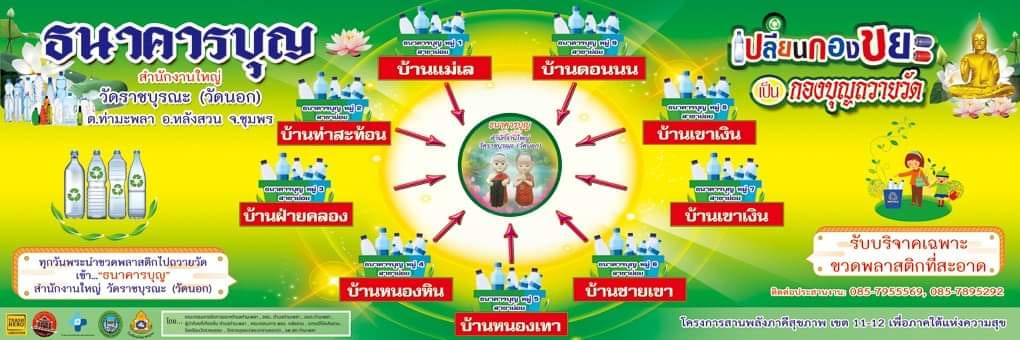
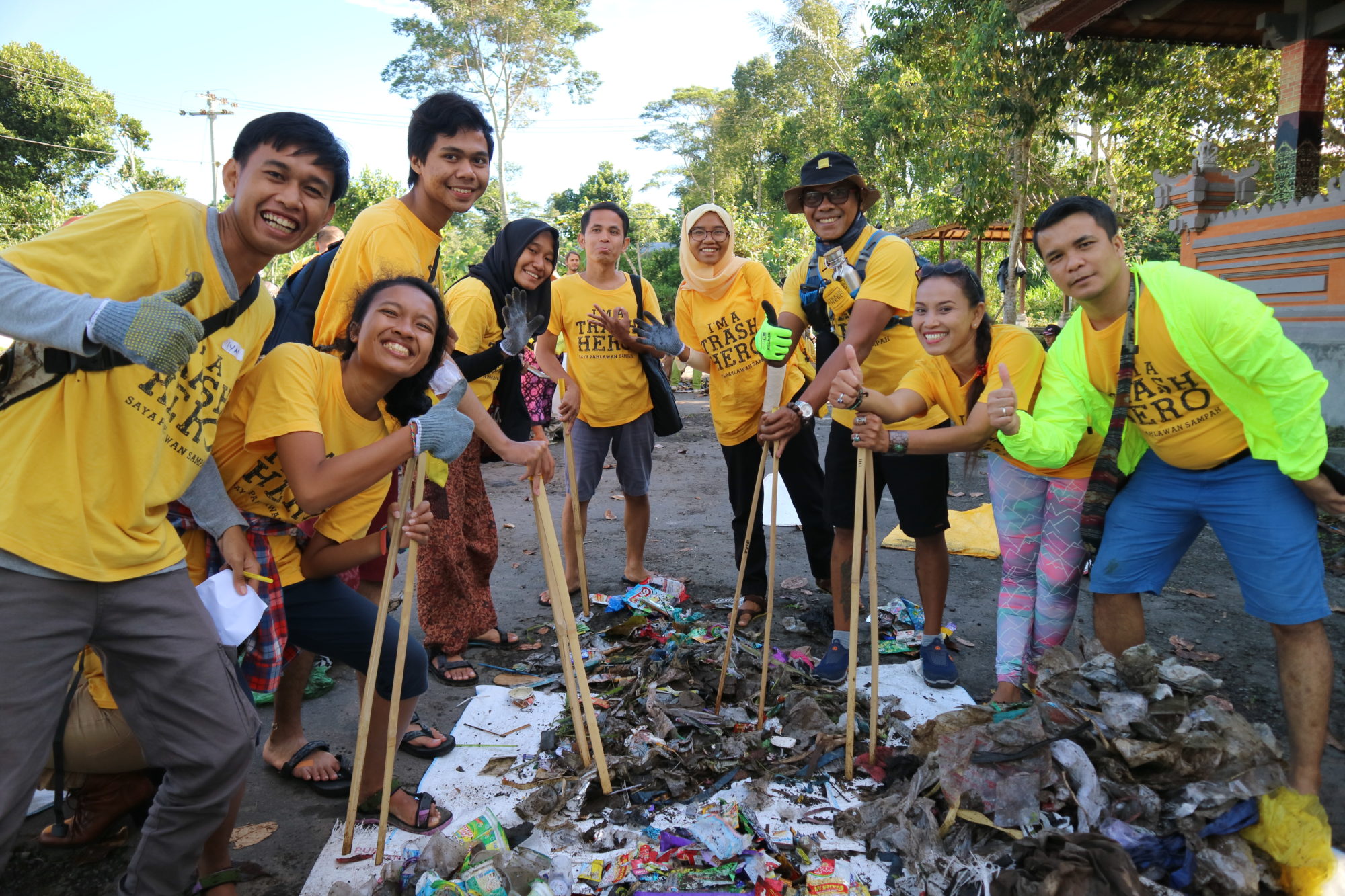
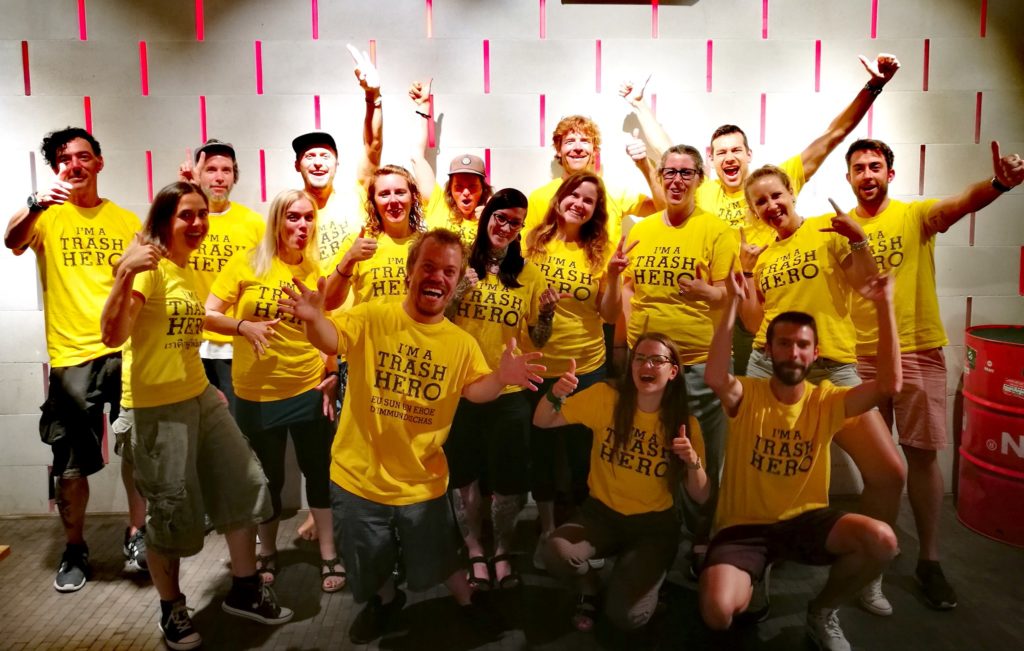
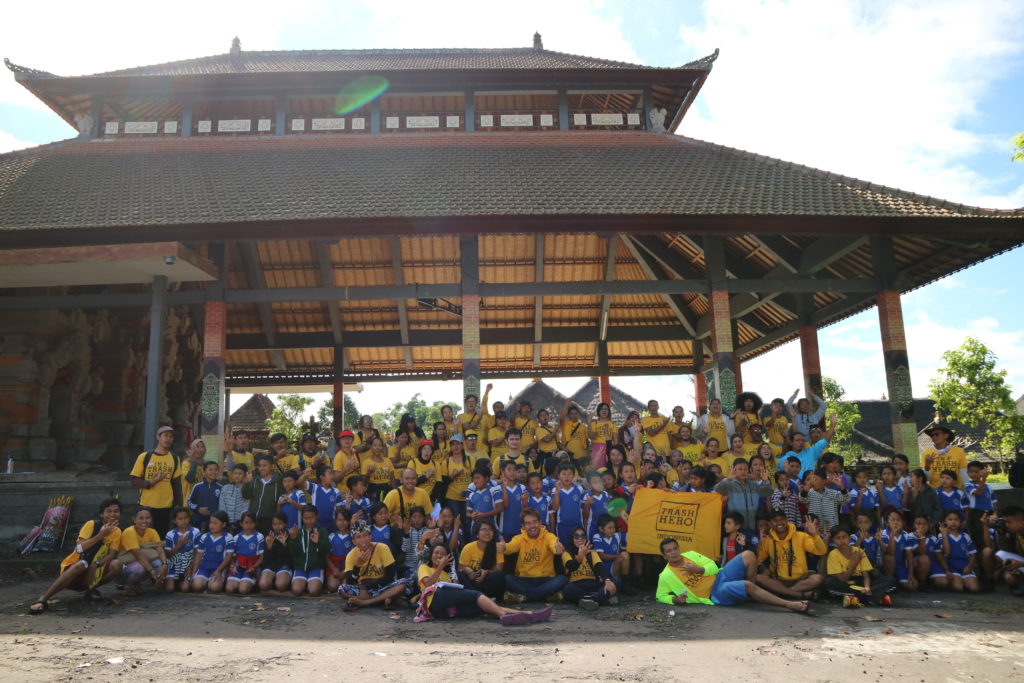
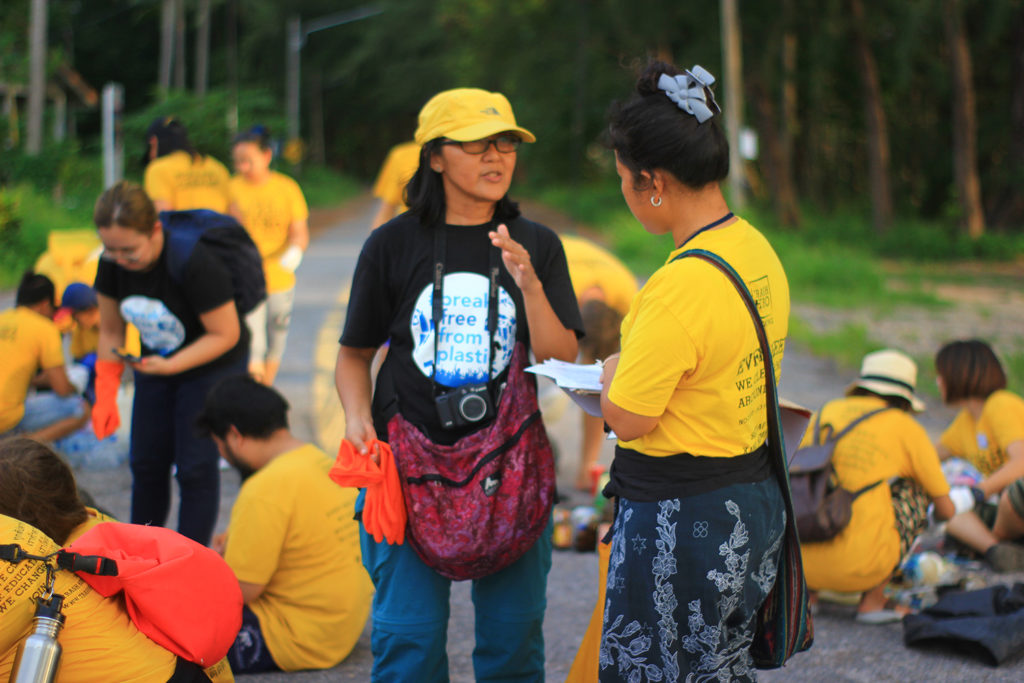
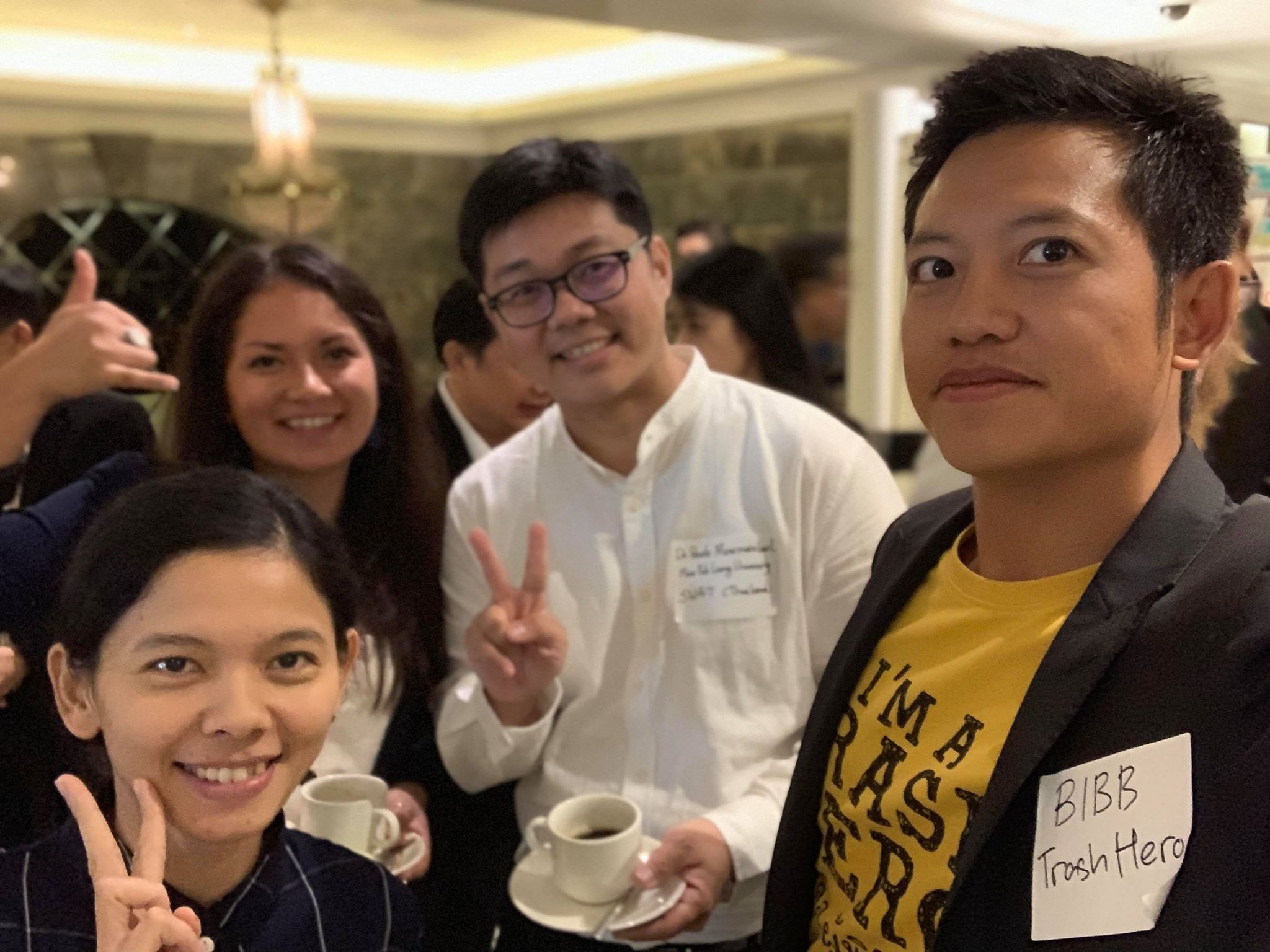
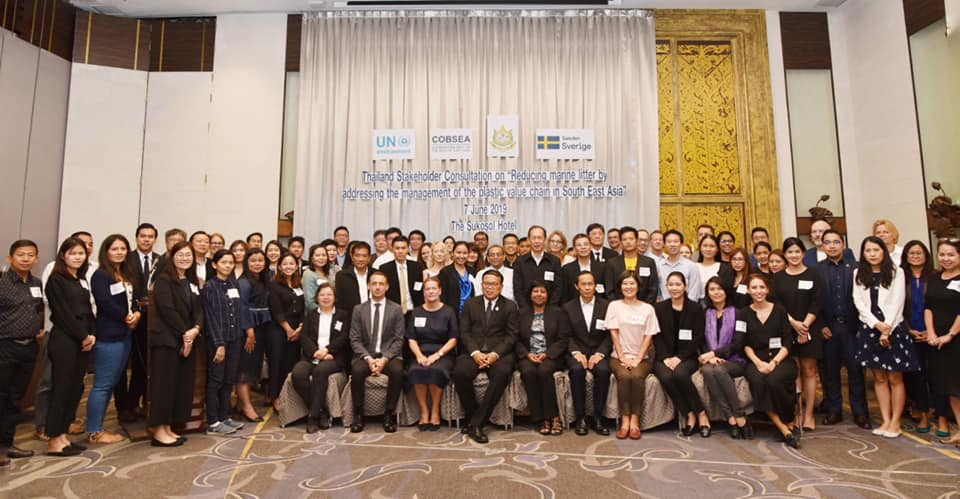
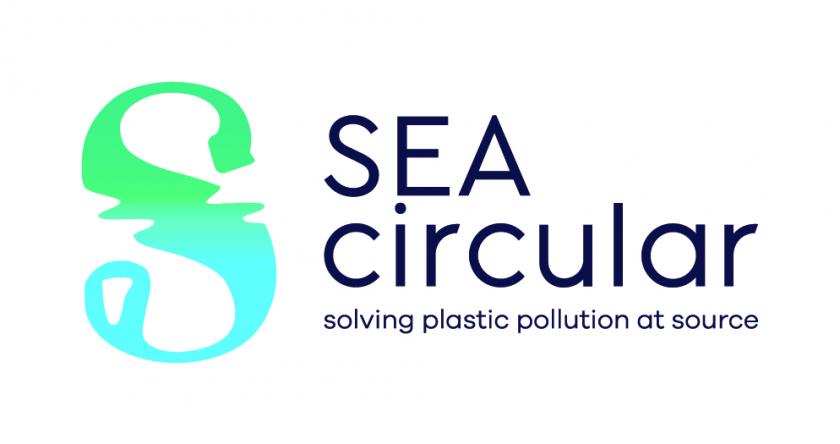
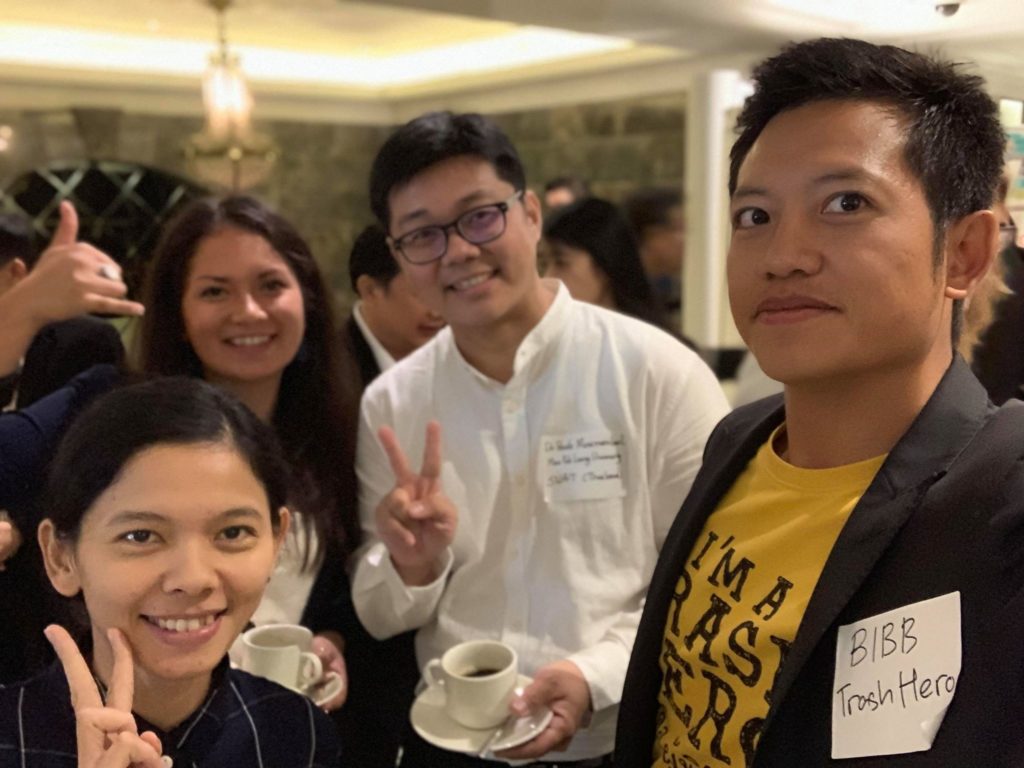
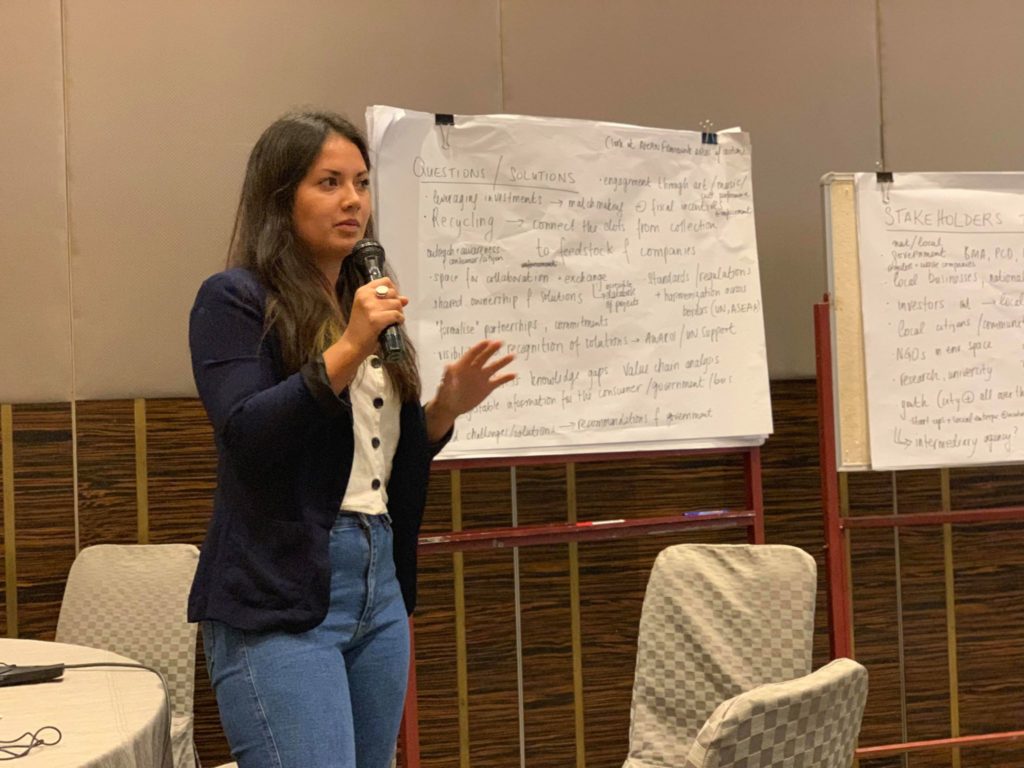
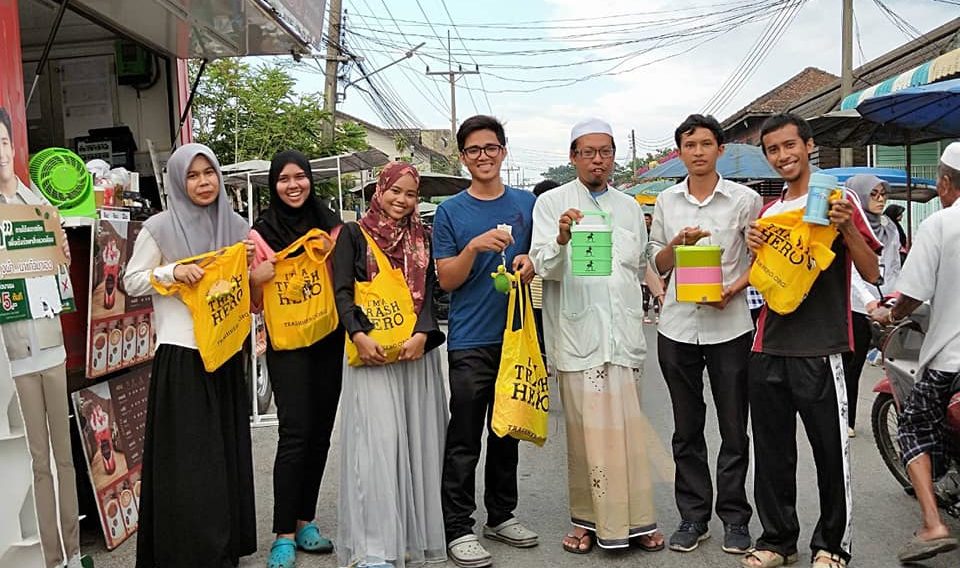
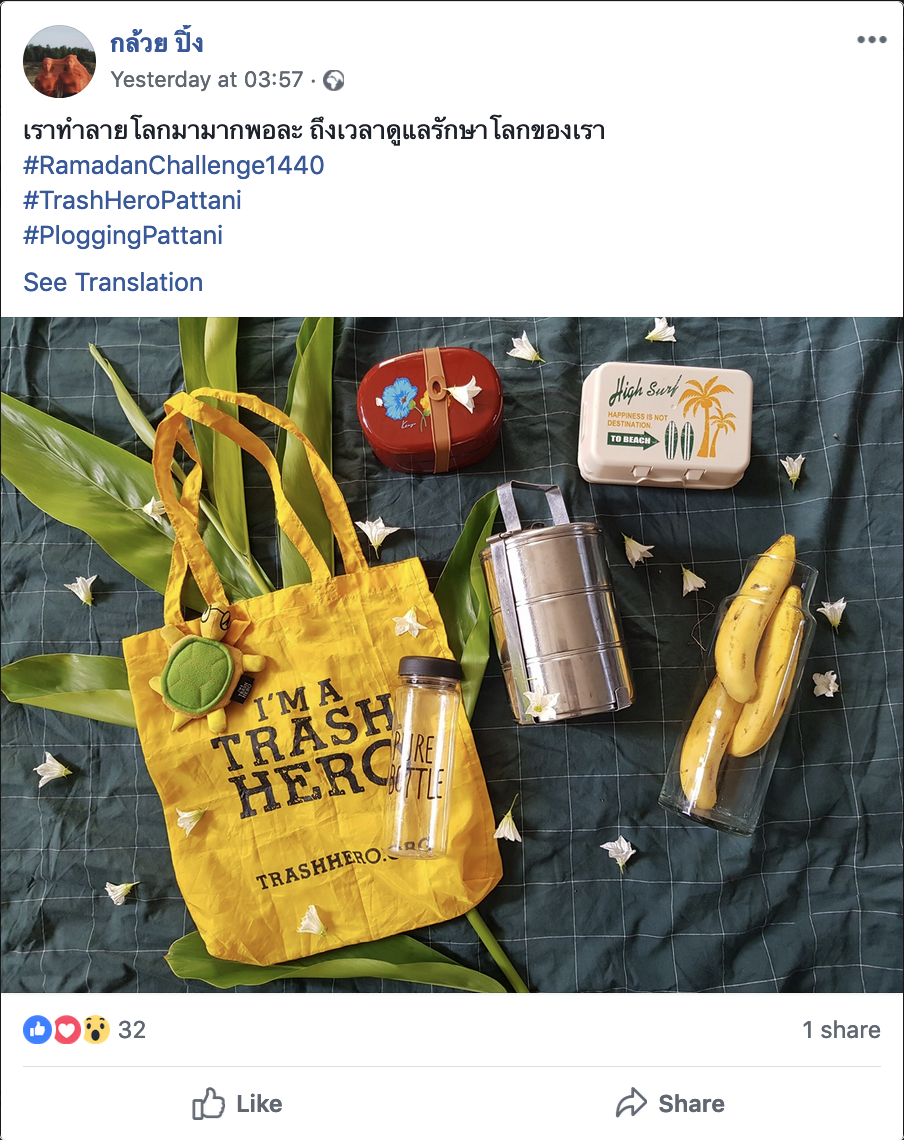
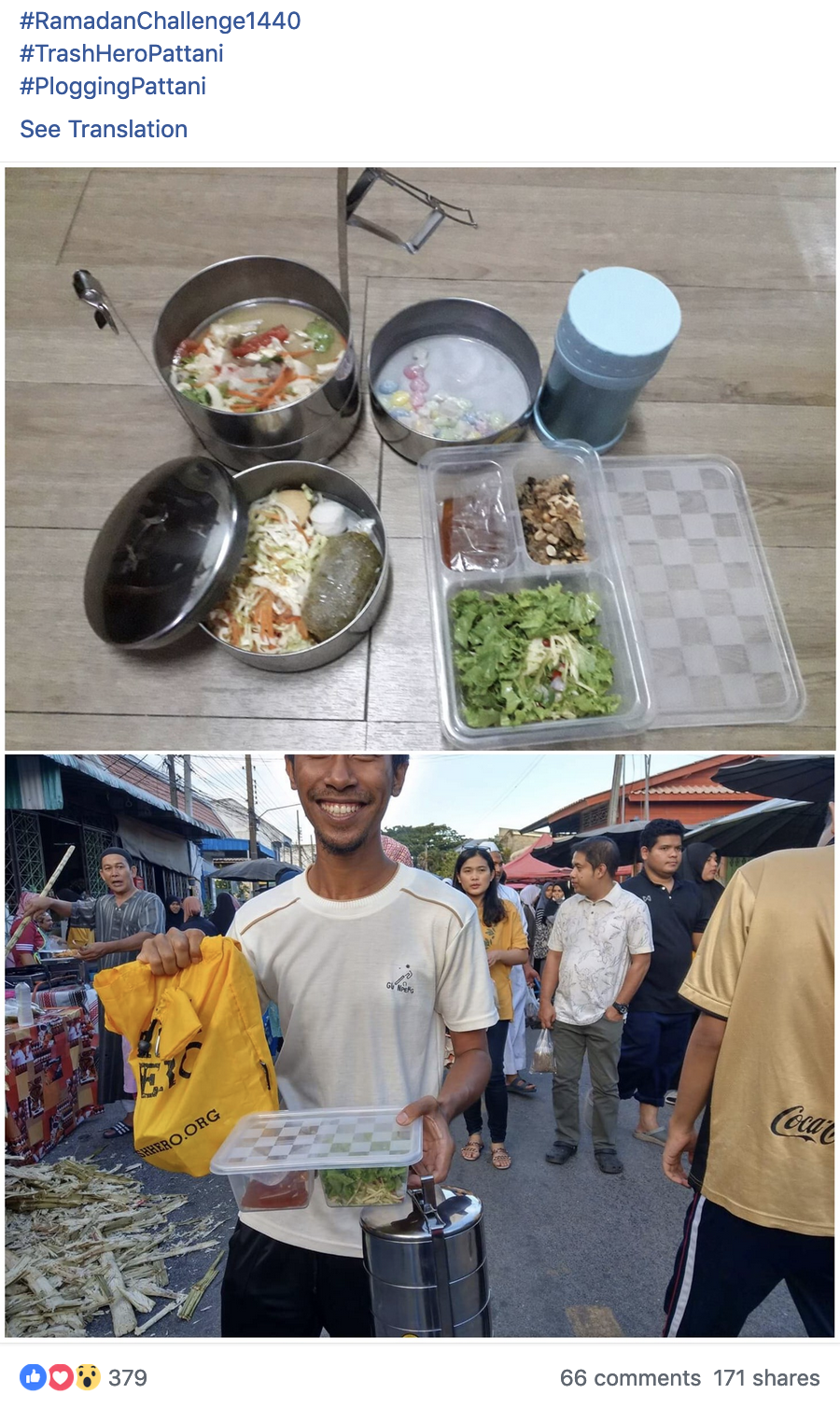
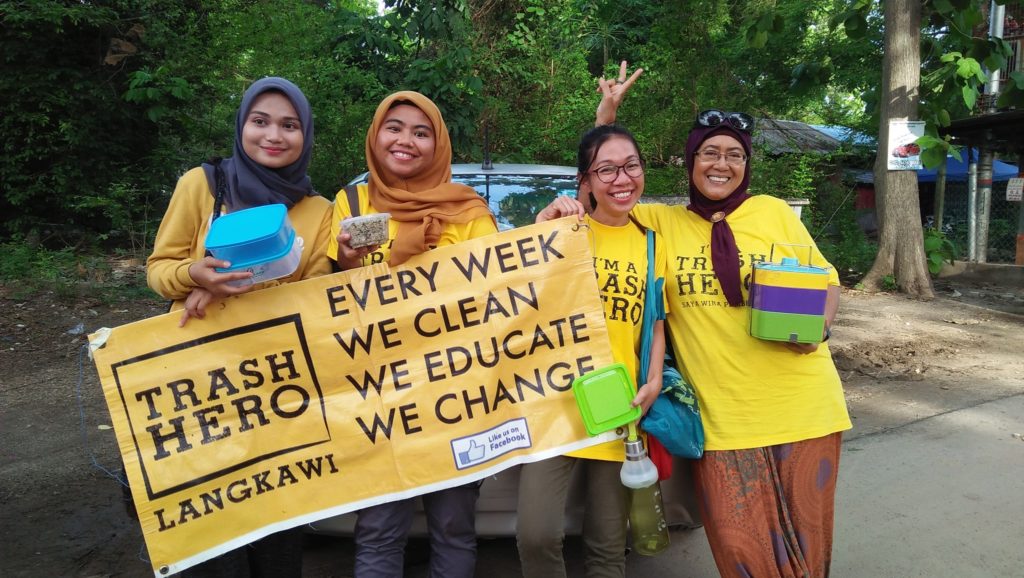

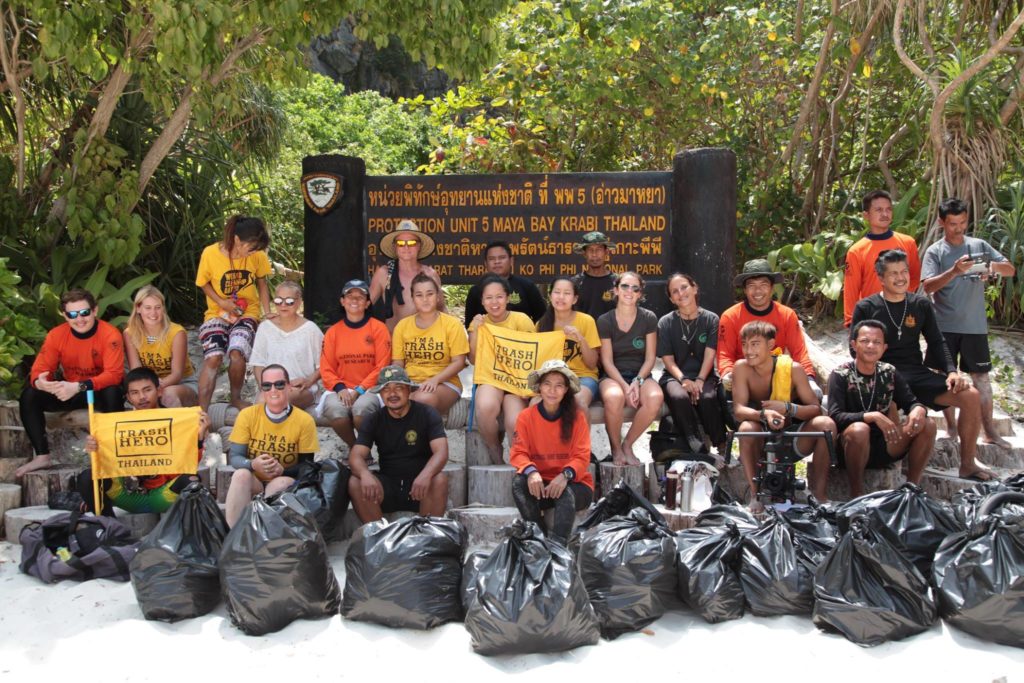

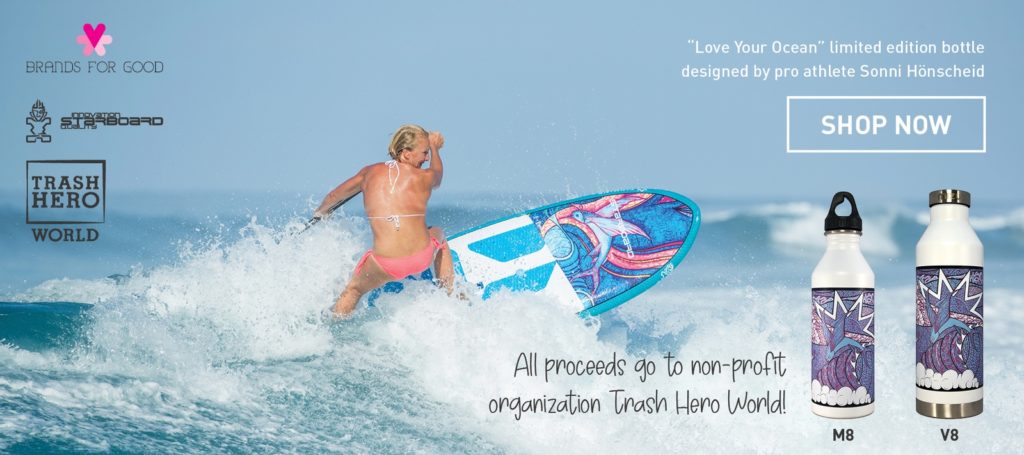
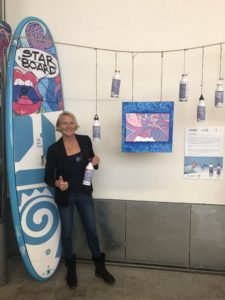
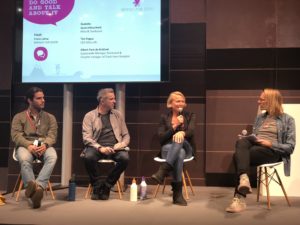
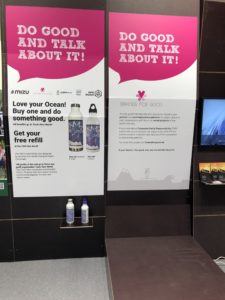
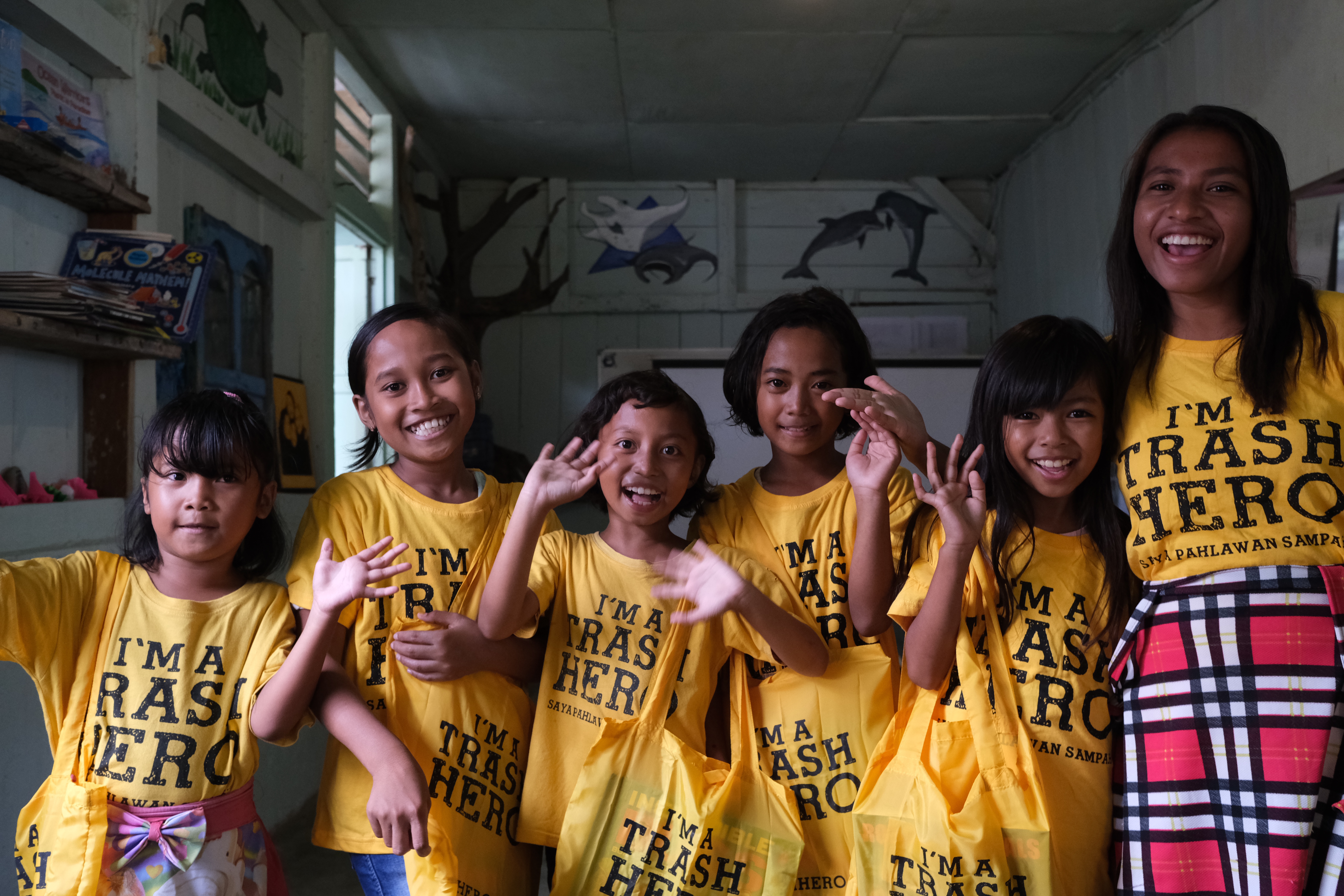
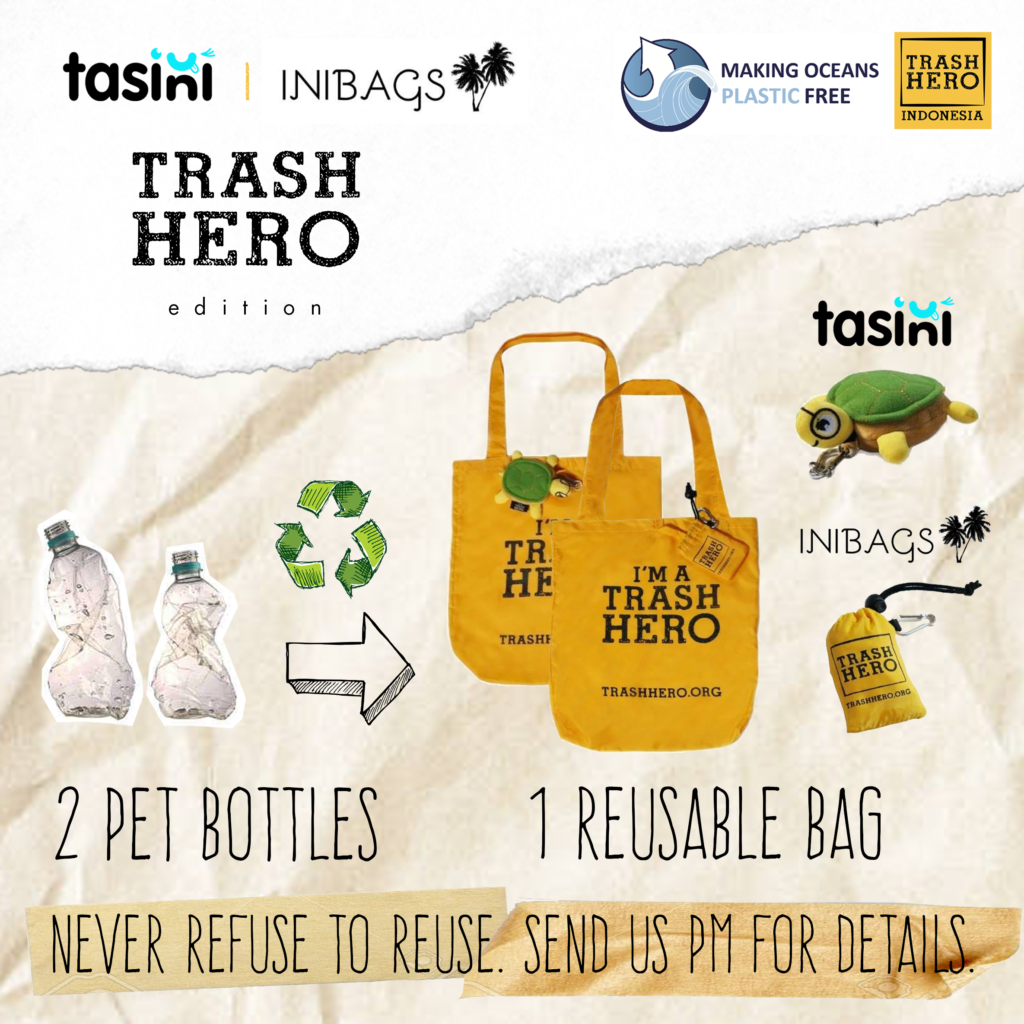
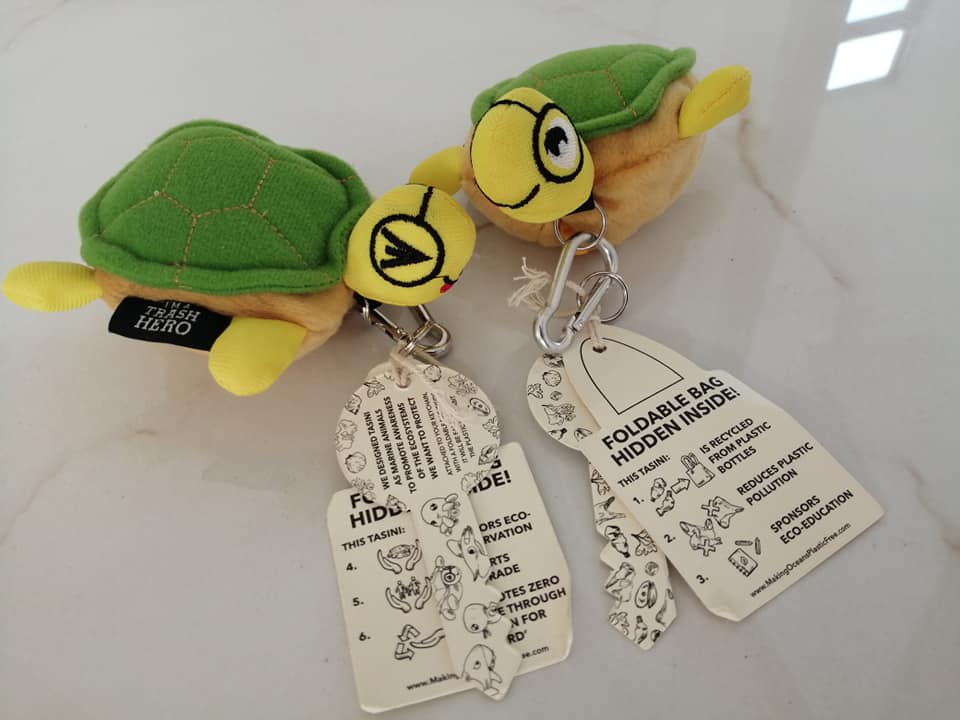
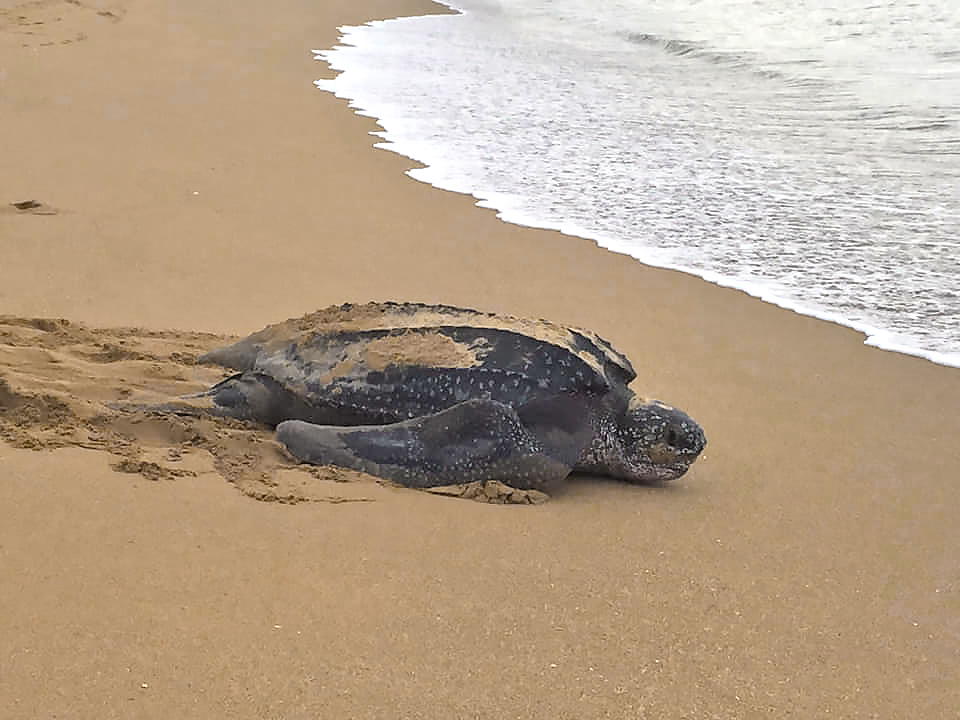
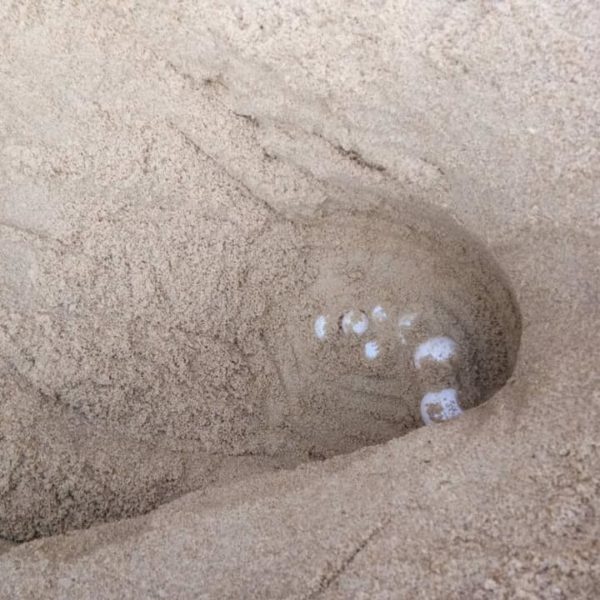
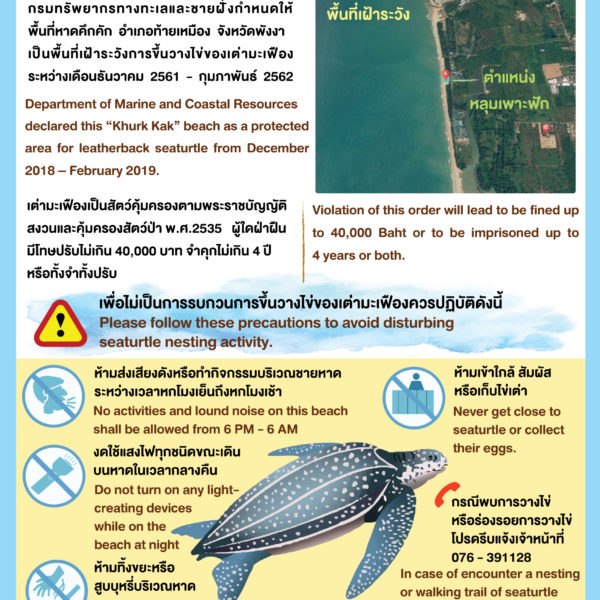
 Parn visiting the DMCR team at the Khuk Khak surveillance site
Parn visiting the DMCR team at the Khuk Khak surveillance site Trash Hero Khao Lak volunteers cleaning Thai Muang beach with the Dept. of National Parks
Trash Hero Khao Lak volunteers cleaning Thai Muang beach with the Dept. of National Parks